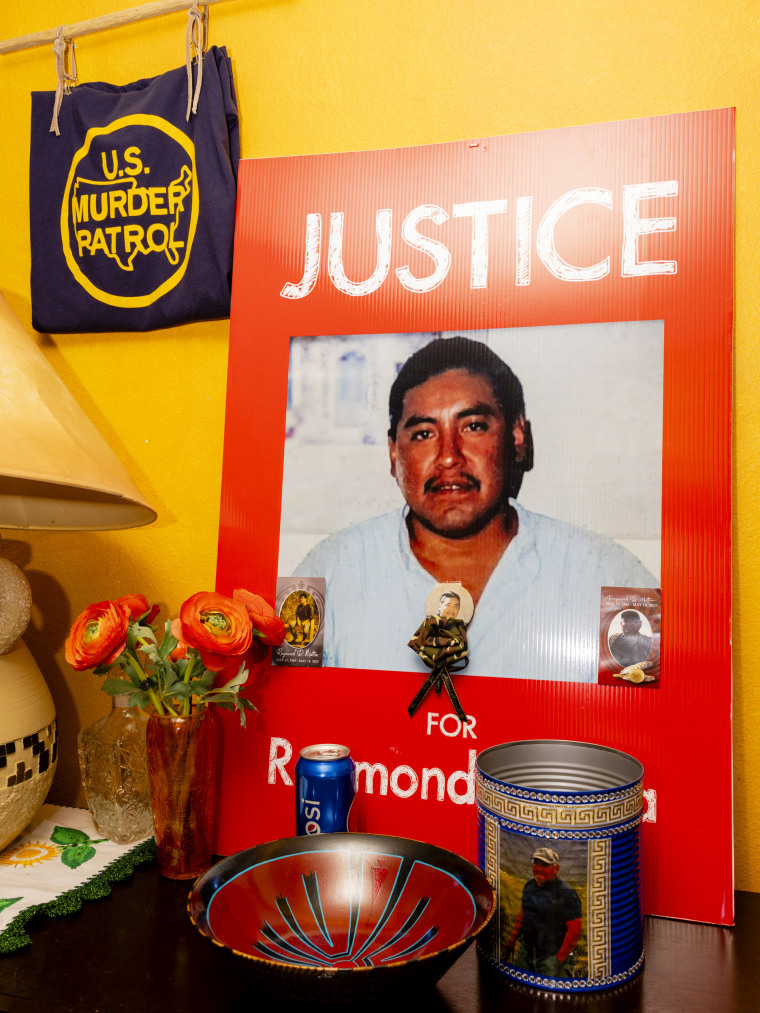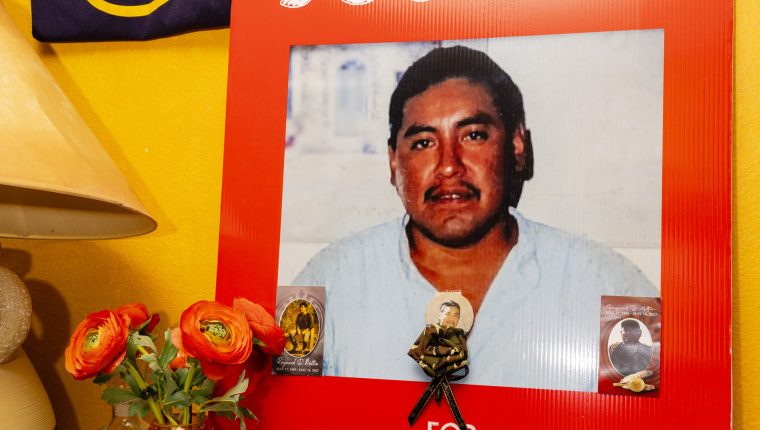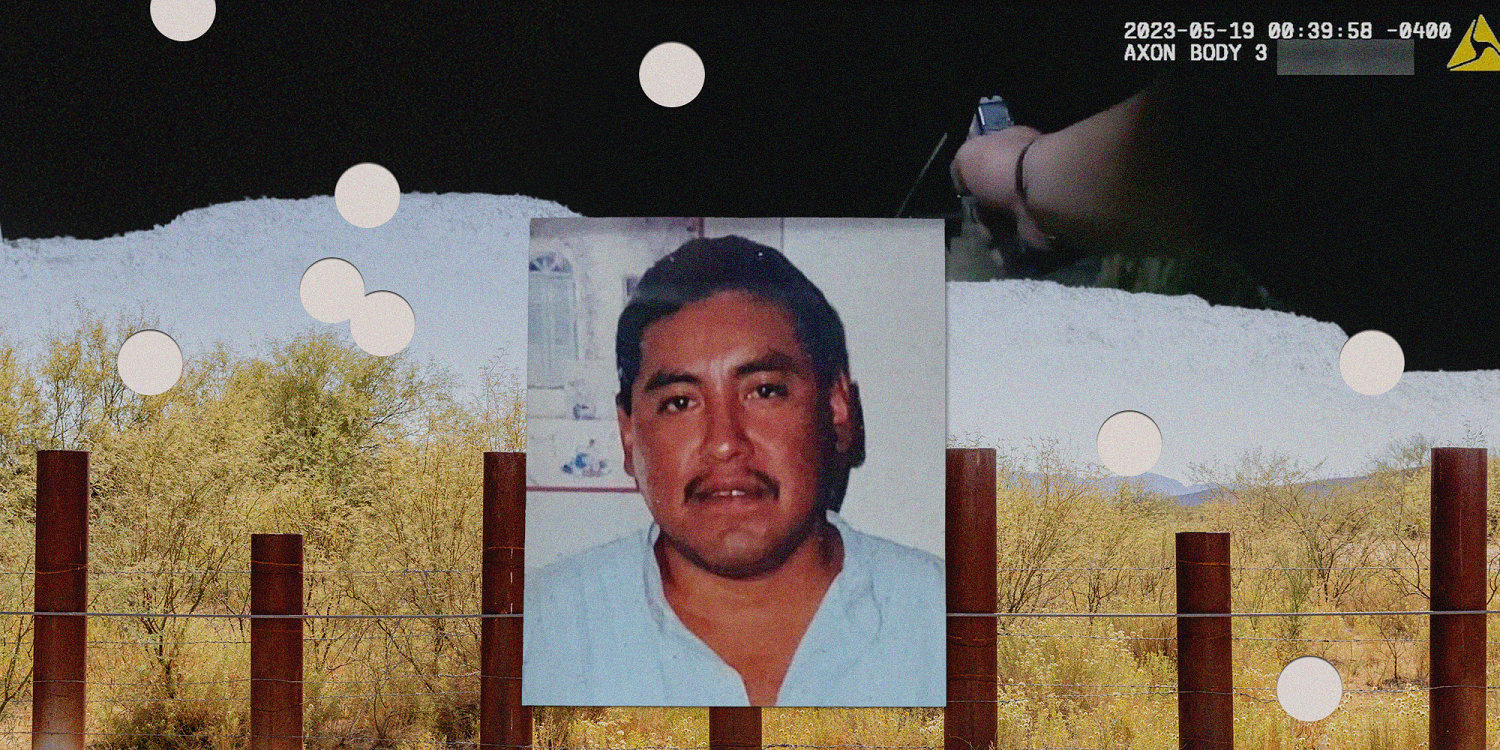His sister Annette Mattia, 61, was just yards away in her own house the night of May 18. Five months later, she choked down tears while standing near the spot where he lay.
“This is where he lived, and it just is sadness and anger because it didn’t have to happen at all,” she said. “If they would have talked to him it would have turned out a lot different because you know he wasn’t a threat.”
“He didn’t deserve to die like this,” her daughter Yvonne Nevarez, 43, added.
Now, the family wants justice.
“To me it feels like there are still murderers walking around. Who knows they might be back out here again? Who knows what they might do to anyone else?” Annette Mattia said in an interview outside her home.
The family, several of whom live on a compound in Menagers Dam Village within the Tohono O’odham Nation, believe that the agents ruthlessly gunned a man down with scant regard for his constitutional rights. But federal prosecutors have already said there will be no criminal charges.
A recent Supreme Court ruling means any effort to sue the agents individually for alleged constitutional violations is doomed to fail. The 2022 ruling is one in a line of cases that has decimated the ability of victims to file lawsuits, known as “Bivens claims,” accusing Border Patrol agents of using excessive force or other constitutional violations.
The court’s dismantling of Bivens has reverberated throughout the federal government and touched nearly every agency, but Border Patrol represents a large fraction of armed federal law enforcement and the geography of their jurisdiction presents a uniquely thorny set of legal questions.
The court, in a case called Egbert v. Boule that involved a claim against a Border Patrol agent, introduced a new legal test that makes it virtually impossible to bring a wide range of claims against federal officials.
And so the Mattia family is far from alone.
In the aftermath of the ruling, lawsuits alleging a wide range of constitutional violations are now routinely tossed out. People mistreated by federal officials aren’t getting their day in court, instead being denied the chance to find out if a jury would agree that their constitutional rights were violated. The court has also made it harder to sue government officials by continually strengthening the legal defense known as qualified immunity — a point that drew the direct ire of protesters during the rise of the Black Lives Matter movement in 2020 in the wake of the police killing of George Floyd.
In the 12 months after Egbert, lower courts cited it 228 times in a range of cases against all kinds of federal officials, according to an NBC News search using the LexisNexis legal database. In 195 of those cases, constitutional claims were dismissed.
Also in the year after the Egbert ruling, judges tossed more than a dozen lawsuits in which Customs and Border Protection (CBP), which Border Patrol is part of, or Immigration and Customs Enforcement (ICE) officers were defendants accused of violating constitutional rights.
Among the 15 out of 16 claims dismissed:
- Migrants affected by the Trump administration’s policy of separating children from parents when detaining people at the border.
- A protester in Texas who claimed that Border Patrol agents had unlawfully arrested him and used excessive force by pushing him to the ground and punching him.
- A Mexican national on vacation in New York who was shot in the hand and face by an ICE agent during an incident in which someone else was being sought.
- A Mexican immigrant who initially ran from ICE agents but stopped and, he says, held up his hands before being shot in the arm.
Even when a federal employee at the Department of Homeland Security sued officials in the department for malicious prosecution after being accused of falsifying documents, a judge dismissed the claim partly on the grounds that, in line with Egbert, “regulating the conduct of immigration agents similarly risks judicial intrusion into national security.”
Some plaintiffs gave up in light of the Egbert decision. Abdulkadir Nur, a Somali American Muslim, who said he was harassed by border protection agents at the airport every time he entered the country, withdrew his Bivens claim after the ruling was issued.
“It’s been predictably a nightmare. We have had to voluntarily dismiss Bivens claims in most of our cases,” said Justin Sadowsky, a lawyer with the legal arm of the Council on American-Islamic Relations, which represents Nur.
The message to federal officers accused of misdeeds is clear: You won’t face lawsuits for your actions.
Without individual accountability, wrongdoers are protected and unconstitutional practices can quickly become normalized among sprawling federal agencies like the Border Patrol, civil rights advocates say.

The plight facing Mattia’s family puts the spotlight on how the Supreme Court ruling affects the U.S.-Mexico border, an area many already view as a lawless hinterland where constitutional rights are not respected.
“The court’s opinion in Egbert is unequivocal that there is no damages action available against any Border Patrol agent for any reason,” including over what happened to Mattia, said Patrick Jaicomo, a lawyer with the libertarian-leaning Institute for Justice.
Lawyers for the Mattia family plan to pursue a wrongful death claim against the federal government, with an announcement scheduled for Friday, the details of which were exclusively shared with NBC News. And while the lawyers say they are not yet completely ruling out bringing a lawsuit alleging constitutional violations against the officers themselves, they concede that they would be facing extremely long odds.
“It makes it very, very difficult to hold the individual officers accountable in front of a jury,” lawyer Timothy Scott said of the Egbert ruling.
‘Absolutely immunized’
Mattia groaned motionless on the ground.
“Hey, do not f—— move,” one agent said.
The agents handcuffed him, blood soaking through his jacket.
“Where’s the firearm?” an agent asked.
Another tended to his wounds: “Keep breathing, bro,” he said.
The agents encountered Mattia at 9:39 p.m. He was pronounced dead at 10:06 p.m.
Whether the officers were looking for Mattia that night, or knew him before, remains unclear. His story is complicated. A toxicology report indicated he had alcohol, methamphetamine and oxycodone in his system at the time of death. He had a criminal record that included a conviction for a sex offense decades ago.
For Annette Mattia, learning about the recent Supreme Court ruling feels like insult added to injury after what happened to her brother.
“They know they’re going to get away with it,” she said. “We’re not going to get justice.”
Source: | This article originally belongs to Nbcnews.com










